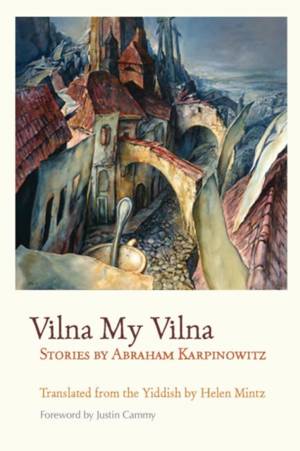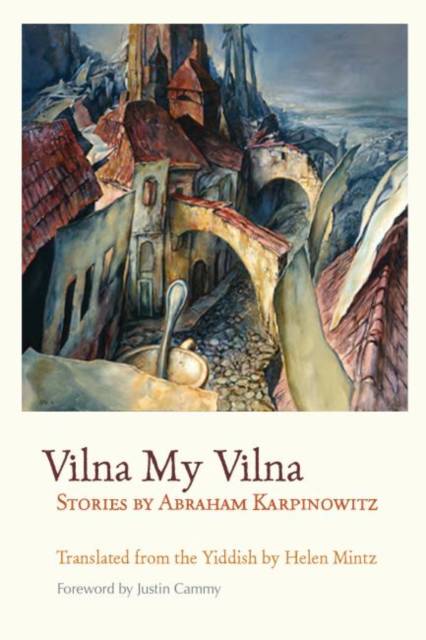
- Afhalen na 1 uur in een winkel met voorraad
- Gratis thuislevering in België vanaf € 30
- Ruim aanbod met 7 miljoen producten
- Afhalen na 1 uur in een winkel met voorraad
- Gratis thuislevering in België vanaf € 30
- Ruim aanbod met 7 miljoen producten
Zoeken
Omschrijving
Abraham Karpinowitz (1913-2004) was born in Vilna, Poland (present-day Vilnius, Lithuania), the city that serves as both the backdrop and the central character for his stories. He survived the Holocaust in the Soviet Union and, after two years in an internment camp on the island of Cyprus, moved to Israel, where he lived until his death. In this collection, Karpinowitz portrays, with compassion and intimacy, the dreams and struggles of the poor and disenfranchised Jews of his native city before the Holocaust. His stories provide an affectionate and vivid portrait of poor working women and men, like fishwives, cobblers, and barbers, and people who made their living outside the law, like thieves and prostitutes. This collection also includes two stories that function as intimate memoirs of Karpinowitz's childhood growing up in his father's Vilna Yiddish theater. Karpinowitz wrote his stories and memoirs in Yiddish, preserving the particular language of Vilna's lower classes. In this graceful translation, Mintz deftly preserves this colorful, often idiomatic Yiddish, capturing Karpinowitz's unique voice and rendering a long-vanished world for English-language readers.
Specificaties
Betrokkenen
- Auteur(s):
- Vertaler(s):
- Uitgeverij:
Inhoud
- Aantal bladzijden:
- 224
- Taal:
- Engels
- Reeks:
Eigenschappen
- Productcode (EAN):
- 9780815634263
- Verschijningsdatum:
- 17/12/2015
- Uitvoering:
- Hardcover
- Formaat:
- Genaaid
- Afmetingen:
- 152 mm x 229 mm
- Gewicht:
- 494 g

Alleen bij Standaard Boekhandel
+ 152 punten op je klantenkaart van Standaard Boekhandel
Beoordelingen
We publiceren alleen reviews die voldoen aan de voorwaarden voor reviews. Bekijk onze voorwaarden voor reviews.











